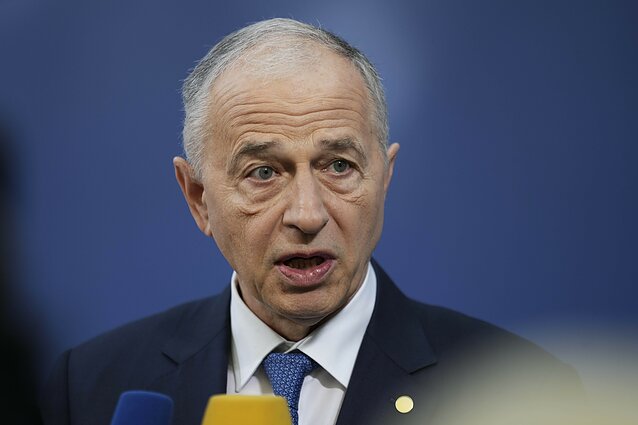
The NATO-Russia agreement signed 25 years ago no longer binds the Alliance because Russia itself violated the agreement by invading Ukraine, says NATO Deputy Secretary General Mircea Geoană, visiting Vilnius. Under the 1997 NATO-Russia Framework Agreement, NATO has pledged not to permanently deploy significant forces in central and eastern Europe, including the Baltic states. However, Russia has committed to refrain from aggression against its neighbours and is not complying, Geoană said in an interview on May 29. As a result, the Alliance is no longer bound by restrictions on the expansion of forces in its eastern flank.
“Russia has basically abolished any content of this founding act,” Geoană said. “It has taken decisions, it has made commitments not to commit aggression against its neighbours, which it does, and to consult regularly with NATO, which it does not.” Russia has essentially withdrawn from the agreement, according to Geoană, “so now we no longer face any constraints to have a strong NATO presence in the eastern flank and to make sure that every square inch of NATO’s territory is protected by NATO’s Article Five and our allies.”
In response to Moscow’s invasion of Ukraine, NATO is considering how to reinforce its members close to Russia.
The Baltic countries are asking for international battalions to be replaced by brigade-sized units several times larger than those deployed there since 2017. Geoană said that the Alliance’s presence in the region would be strengthened in various spheres, but the specific size of the force is not clear. Final decisions will be made at the NATO summit in Madrid, he said.
“We understand the interest in quantity, but we also want to emphasise quality. We expect very important decisions from our leaders in Madrid,” said the deputy secretary general of NATO. A new Strategic Concept for the Alliance is due to be adopted at the NATO Summit in Madrid in June. LRT.lt



























